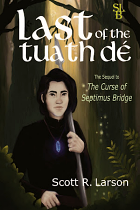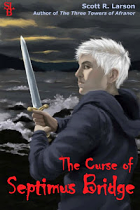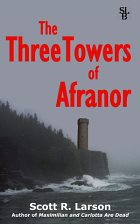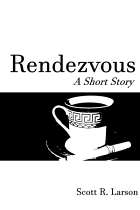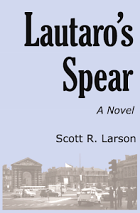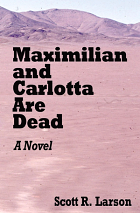Fleadh by night (by night)
Another July, another Galway Film Fleadh. It was the 36th one for Galway. Only the 19th one for me.
Last year my post-festival round-up focused on who did and did not show up. That was less of a question this year since we are now even further removed from the pandemic-era lockdowns and last year’s Hollywood labor stoppages.
So, lots of film people and audiences showed up. Perhaps the most delightful instance of people showing up was in meeting many of my own neighbors at one of the film screenings. I don’t usually run into people who live on my rural road at film festivals, although I know some of them do have a keen interest in movies, and I have had good chats with them about various flicks we have seen.
The reason our neighborhood turned out was to see a short film called Remote Strutting for which the young man four houses down from me, Ruaidhrí Hallinan, had written the screenplay and served as director of graphics. Impressively, he and his wife and their youngest child were also there, that child having been born only a few days before. Now, that’s familial support.
Ruaidhrí’s film was one of eight in a program conveniently titled Irish Talent, New Shorts 3: Fiction. If saving the best for last is a real thing, then the programmers must have thought Remote Strutting was the best because it closed the program with a rousing applause from the audience. It’s the kind of movie that makes you feel good while delivering a worthwhile message, and it has a twist at the end that makes you smile.
Another film written by Ruaidhrí is already in the can, and I’m looking forward to seeing that one, hopefully, later this year. It’s a rural drama with great and well known actors. It’s called Where the Old Man Lives, and I’m not dignifying queries from those who have asked if it’s about me.
Getting back to people showing up at the fleadh, I didn’t show up for the opening night for logistical reasons, and I kind of figured that tickets would be hard to get anyway because of the popularity of and anticipation for the flick. The film was the Northern Ireland Irish-language tongue-in-cheek documentary Kneecap, which won the Audience Award at Sundance in January. Like lots of people, I saw the titular rap trio’s interview on Irish television following their film fest triumph, and I nearly feel as though I’ve already experienced the thing. Of course, when and if I do see it, I will surely find I was mistaken. Anyway, the buzz from opening night could be felt the whole rest of the week, and Kneecap wound up winning fleadh awards for Best Irish Film and the Audience Award. I, on the other hand, would get my raucous music doc fix two nights later viewing Nicolas Jack Davies’s film about the lives of Cedric Bixler-Zavala and Omar Rodriguez-Lopez.
There seems to be a new trend at fleadh screenings, perhaps to save on travel expenses? On the second night, before viewing The Hypnosis, the film was introduced by Swedish filmmaker Ernst De Geer—by video recording. That certainly saved some air fare. The following night, Tokyo Cowboy (one of my two favorite feature films of the fleadh) was introduced by its American director Marc Marriott, also via a video recording. Yes, this is a trend, I thought.
On the third night, there was no filmmaker to introduce the U.S. movie What We Find on the Road. A festival programmer introduced it, explaining that its director Chaysen Beacham had planned to be there, only realizing at the last minute that his passport had expired.
Later that evening I finally saw an actual, real-life, in-the-flesh filmmaker. Anthony Chen was there from Singapore to introduce his The Breaking Ice (my other favorite feature film of the fleadh) and to discuss it afterwards. He explained how he wrote the screenplay about three young people adrift in a remote, frozen location while he was locked down by himself in a hotel room during the Covid pandemic. He filmed it in China, the country of his ancestors, under rigorous censorship which seems not to have hindered its artistic quality. The interviewer/programmer asked some good questions, but he didn’t ask the one I would have. How on earth were the scenes with gigantic bear done? It looked like it could it could have been a mixture of CGI (although this was a totally non-CGI kind of movie) and special effects, but it was hard to be sure. Anyway, it had quite the impact in a spellbindingly dreamlike and quirkily spiritual movie.
On the penultimate evening, two filmmakers showed up. A charming woman by the name of Désirée Nosbusch appeared to introduce her movie Poison, a project she had had in her head and was developing for years and was clearly quite passionate about. From Luxembourg (where her film was mostly shot), she was very familiar with Galway because for five seasons the busy actor has starred as retired criminal psychologist Catherine Blake in the German TV series Der Irland-Krimi (Irish Crime), filmed in the City of the Tribes. After we had all seen her movie, she returned to answer questions along with someone who had not seen the movie or, for that matter, any movie featuring Poison’s lead male actor Tim Roth.
That person was Tim Roth himself, who never watches his movies but who is quite happy to talk about them. He lavished praise on the screenplay and the director, noting that it was “worth doing three sh***y movies” so that he could afford to work on a quality one like this one. That’s the sort of comment that sends people like me to check his lengthy list of film credits to see what movies he might have been talking about. Surely, he wasn’t talking about any of his several collaborations with Quentin Tarantino. In response to a question, he said he would definitely be watching England play Spain the following day in the European soccer finals. Sadly for him, England would lose.
At the next screening, the documentary Brats was introduced by its director, the actor Andrew McCarthy. At a distance he looked like the same kid we remembered sleeping with his friend Rob Lowe’s mother in Class, was secretly in love with Ally Sheedy in St. Elmo’s Fire, insensitively backed out of a prom date with Molly Ringwald in Pretty in Pink, fell in love with window dummy Kim Cattrall in Mannequin, got involved in the youthful L.A. drug scene in Less Than Zero and spent a Hamptons getaway pretending his boss wasn’t dead in Weekend at Bernie’s. In closeups onscreen, he looked like the veteran actor in series like The Family and The Resident.
We learned that McCarthy’s appearance in Galway was nostalgic, and of course, with a surname like his, it shouldn’t have been surprise that he has Irish connections. Exactly 20 years earlier, he came to the fleadh to screen a short film he had directed, an adaptation of a Frank O’Connor story called News for the Church. Furthermore, he met his wife, Dublin-born writer/director/actor Dolores Rice, in Galway.
The pièce de resistance of people showing up at the fleadh was the final day’s public interview at the Galmont Hotel with veteran Scotland-born actor Brian Cox. (You can read my summary and impressions of the conversation for more information.) I have suspicions that people at RTÉ (Raidió Teilifís Éireann, Ireland’s national broadcaster) are obsessed with the series Succession, and radio host Kay Sheehy’s questions for the actor did nothing to allay them. I suppose it’s natural since much of the series’s narrative was taken up with television news. In particular, no RTÉ news item involving Australia-born media mogul Rupert Murdoch seems to go without a journalist mentioning Succession, as if the series were Murdoch’s official biography. I was glad to see Cox correct the record, insisting that Murdoch and the fictional Logan Roy were not at all the same man. (Cox was also eager to distance himself from the character, calling him the antithesis of what he personally stood for.) Logan and Rupert are fundamentally different, he said, because Logan is a self-made man while Murdoch inherited his father’s business. I might have added that Murdoch’s children—at least the ones known publicly—don’t seem quite as dysfunctional as the famously unstable Roy offspring.
I can’t believe the fleadh is already over for another year, but that’s okay because in 50 weeks I won’t be able to believe that it’s time for the fleadh again. That’s how things are in the house where the old man lives.
-S.L., 20 July 2024
If you would like to respond to this commentary or to anything else on this web site, please send a message to feedback@scottsmovies.com. Messages sent to this address will be considered for publishing on the Feedback Page without attribution. (That means your name, email address or anything else that might identify you won’t be included.) Messages published will be at my discretion and subject to editing. But I promise not to leave something out just because it’s unflattering.
If you would like to send me a message but not have it considered for publishing, you can send it to scott@scottsmovies.com.















